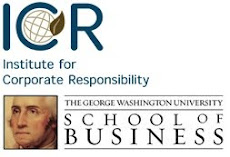Fifa and streetfootballworld founded the Football for Hope Movement to use football (soccer in the States) as a tool to address issues such as health, education, gender equality, peace building, the environment, and HIV/AIDS.
My class had the privilege of visiting the first Football for Hope Centre in Khayelitsha Township outside of Cape Town (see photo below). The centre uses football as a tool to attract youth ages 10-16 to the centre, and then invites them to join educational programs as well. While the centre does have about seven staff, it is mostly run by volunteers from the township.
In addition to various educational programs run by different nonprofit partners, the youth are also taught leadership skills, so they can address and solve problems in their communities. Volunteers are also able to gain much needed skills and after so many volunteer hours they can also gain access to training opportunities; for example, a 42-year-old woman got her driver’s license for the first time.
There are a number of 2010 World Cup sponsors, but Yingli Solar stands out for providing solar panels to each of the 20 centers around Africa (including the five in South Africa) as this method of support helps the centers and the environment long-term, while also aligning with Yingli Solar’s business strategy.
Although the center only opened in January of this year, the staff and volunteers have already witnessed the youth developing new skills and learning how to protect themselves, their families, and their country from HIV/AIDS. Football for Hope and its grassroots efforts for social change is just one of the legacies the 2010 World Cup will leave South Africa and Africa.
First Football for Hope Centre in Khayelitsha Township outside of Cape Town






No comments:
Post a Comment